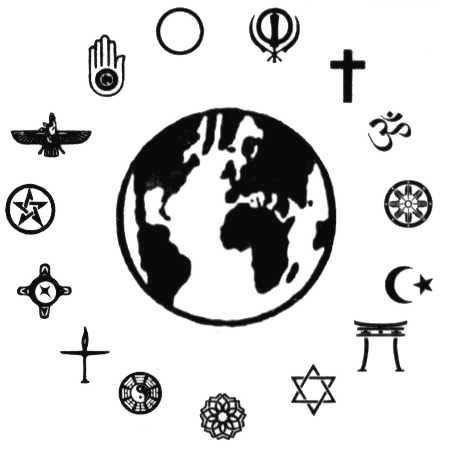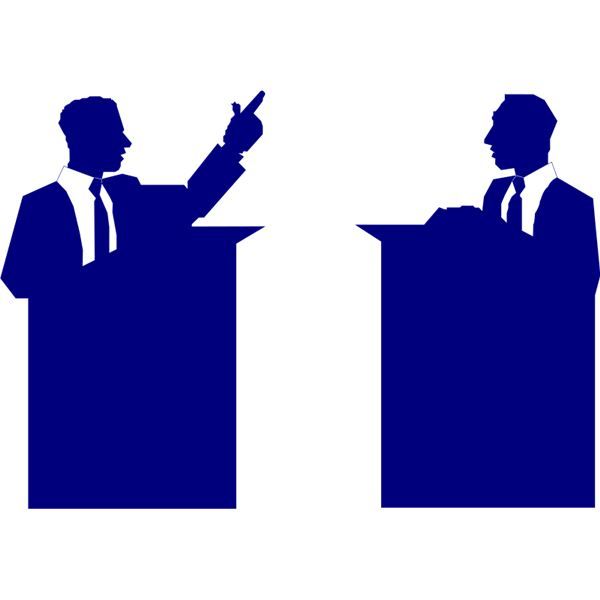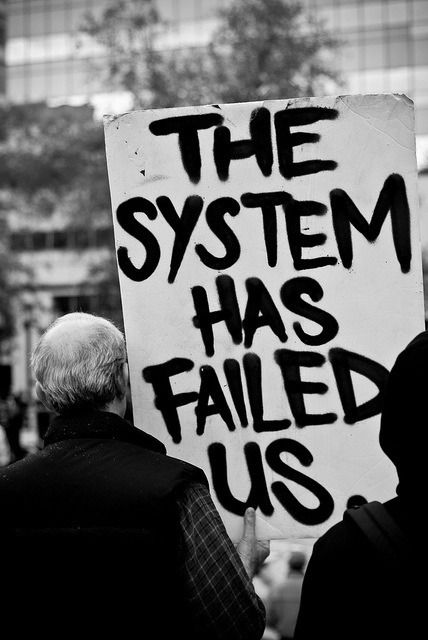Should Religion Still Dictate Morality in a Secular Age?

Introduction: Morality at a Crossroads
As societies become increasingly pluralistic and secular, the question resurfaces: Should religion still be the moral compass guiding public life, laws, and social values? For centuries, religion and morality have been tightly intertwined, with faith-based doctrines shaping codes of conduct, justice, and communal ethics. Yet today, in a world characterized by technological advancement, diverse belief systems, and an expanding emphasis on human rights, many are questioning whether religion’s moral framework remains relevant—or even appropriate.
This is not a call to dismiss religion or its values. Rather, it's a necessary conversation about whether moral guidance must continue to be monopolized by religious ideologies, especially in multicultural, secular democracies.
The Historical Link Between Religion and Morality
Historically, religion has served as the bedrock of morality. Ancient civilizations—from Egypt to Mesopotamia—embedded religious codes into governance and everyday behavior. In the West, Judeo-Christian values shaped legal and ethical norms for centuries. In Islamic societies, Sharia law provided a comprehensive system governing personal and communal conduct.
This intertwining made sense in homogenous societies where one religious belief was dominant. Morality, defined through that lens, was not contested. Adultery was sinful, lying was wrong, charity was virtuous—these judgments were upheld by divine authority and often enforced by religious institutions.
But as societies globalized and diversified, this once-clear moral framework became more fragmented.
The Rise of Secularism: A Shift in Moral Authority

image credit: pinterest
Secularism, at its core, separates religion from state affairs and public institutions. It does not necessarily negate personal faith—it simply prevents any single religion from dictating public policy or law.
In secular democracies like France, Sweden, and Canada, morality is increasingly defined through humanist, rationalist, and universalist frameworks. Instead of appealing to divine authority, these frameworks ask: What promotes wellbeing? What is fair and just for all? What protects rights and freedoms?
Human rights charters, legal constitutions, and civil discourse now serve as key arbiters of moral debates—from same-sex marriage to abortion, euthanasia to freedom of speech.
And yet, in many parts of the world—including Africa, South Asia, and the Middle East—religion continues to be a dominant source of moral guidance. This contrast creates tension and raises difficult questions: Whose morality counts? Can secular ethics provide the same moral clarity as religion? And does removing religion from public life mean erasing morality itself?
Religion’s Enduring Value in Moral Formation

image credit: pinterest
To be fair, religion still plays an invaluable role in shaping individual conscience. For billions of people, religious teachings are not just dogma—they are frameworks for kindness, empathy, discipline, and self-reflection.
Social Insight
Navigate the Rhythms of African Communities
Bold Conversations. Real Impact. True Narratives.
Faith-based communities offer moral support, social accountability, and intergenerational wisdom. Concepts like forgiveness, humility, and justice are taught through religious parables and prayers long before children encounter secular ethics in school.
Moreover, religion can serve as a moral counterweight to hyper-individualism, consumerism, and nihilism that often characterize modern life. In times of crisis, religious morality can unify people across class, ethnicity, and politics in ways that secular ideologies sometimes struggle to match.
So, while secular ethics may dominate public policy, religion remains deeply personal and socially influential—a reservoir of moral formation that cannot be dismissed outright.
Where Religion and Morality Conflict
However, problems arise when religious morality conflicts with secular values or infringes on the rights of others. Consider:
LGBTQ+ rights: Many religious doctrines label homosexuality as immoral. But in secular societies that recognize sexual diversity as a human right, enforcing religious views through law becomes discriminatory.
Women’s rights: Religious restrictions on women’s clothing, autonomy, or leadership often conflict with secular feminist movements advocating equality.
Freedom of belief: In some countries, apostasy or blasphemy laws—rooted in religious morality—criminalize dissent, violating freedom of expression and conscience.
These tensions reveal a critical truth: morality derived solely from religion is not always inclusive, especially in pluralistic societies where citizens do not share the same faith. A theocratic approach to morality can marginalize minorities, silence dissenters, and limit progress.
A Case for Secular Morality
Secular morality does not mean a morality without values—it means building ethical systems based on reason, empathy, and shared human experience rather than divine command. Philosophers like Immanuel Kant,John Stuart Mill, and more recently, Martha Nussbaum, have argued that morality can be objective without being religious.
Secular ethics ask:
What promotes the wellbeing of the most people?
What maximizes freedom and dignity?
What reduces harm?
Social Insight
Navigate the Rhythms of African Communities
Bold Conversations. Real Impact. True Narratives.
These questions lead to moral frameworks like utilitarianism, rights-based ethics, virtue ethics, and care ethics—all non-religious, yet deeply moral.
In fact, secular morality has been instrumental in advancing abolition, universal education, civil rights, and climate justice. These movements are often supported by people of faith but are not necessarily religious in origin.
The African Context: Navigating Tradition, Religion, and Modernity
In many African societies, religion—Christianity, Islam, and indigenous beliefs—still holds strong sway over morality and law. From Nigeria’s Sharia-implementing states to Uganda’s anti-LGBT laws, religious moralities often influence public policy.
Yet Africa is also home to youth-led secular movements, urban progressives, and constitutional democracies that challenge theocratic governance. This duality creates a moral tension: How do we honor religious traditions while ensuring inclusive, rights-based societies?
The answer lies not in silencing religion, but in balancing it. Religious moral voices should be welcomed in public discourse—but not used as absolute authority over those who do not subscribe to them. A secular framework ensures that no single belief system dominates, and that laws protect the rights of all citizens, regardless of faith.
Morality in a Digital, Diverse, and Post-Religious World
Today’s moral dilemmas—AI ethics, climate change, data privacy, genetic engineering—often outpace traditional religious frameworks. We are entering moral territory that ancient scriptures never imagined.
In this new age, we need ethics that are adaptive, inclusive, and collaborative. Moral thinking must evolve alongside technological and social change. This doesn’t mean abandoning religion—it means not solely depending on it.
We need both: the depth and compassion of faith-based morality, and the flexibility and universality of secular ethics.
Conclusion: Beyond Either/Or
So, should religion still dictate morality in a secular age?
The answer is nuanced. Religion can continue to inform morality, especially on a personal and communal level. But it should no longer dictate it—especially in pluralistic societies where people hold vastly different beliefs.
Morality must be a shared social project, grounded in reason, empathy, human dignity, and inclusive dialogue. Religious values have a place—but not the only place—at the table.
In a truly secular age, morality is not abandoned. It is co-created, with space for tradition and transformation, for sacred texts and secular principles, working together to build a just society.
Recommended Articles
You may also like...
Bundesliga's New Nigerian Star Shines: Ogundu's Explosive Augsburg Debut!

Nigerian players experienced a weekend of mixed results in the German Bundesliga's 23rd match day. Uchenna Ogundu enjoye...
Capello Unleashes Juventus' Secret Weapon Against Osimhen in UCL Showdown!

Juventus faces an uphill battle against Galatasaray in the UEFA Champions League Round of 16 second leg, needing to over...
Berlinale Shocker: 'Yellow Letters' Takes Golden Bear, 'AnyMart' Director Debuts!

The Berlin Film Festival honored
Shocking Trend: Sudan's 'Lion Cubs' – Child Soldiers Going Viral on TikTok

A joint investigation reveals that child soldiers, dubbed 'lion cubs,' have become viral sensations on TikTok and other ...
Gregory Maqoma's 'Genesis': A Powerful Artistic Call for Healing in South Africa

Gregory Maqoma's new dance-opera, "Genesis: The Beginning and End of Time," has premiered in Cape Town, offering a capti...
Massive Rivian 2026.03 Update Boosts R1 Performance and Utility!

Rivian's latest software update, 2026.03, brings substantial enhancements to its R1S SUV and R1T pickup, broadening perf...
Bitcoin's Dire 29% Drop: VanEck Signals Seller Exhaustion Amid Market Carnage!

Bitcoin has suffered a sharp 29% price drop, but a VanEck report suggests seller exhaustion and a potential market botto...
Crypto Titans Shake-Up: Ripple & Deutsche Bank Partner, XRP Dips, CZ's UAE Bitcoin Mining Role Revealed!

Deutsche Bank is set to adopt Ripple's technology for faster, cheaper cross-border payments, marking a significant insti...

